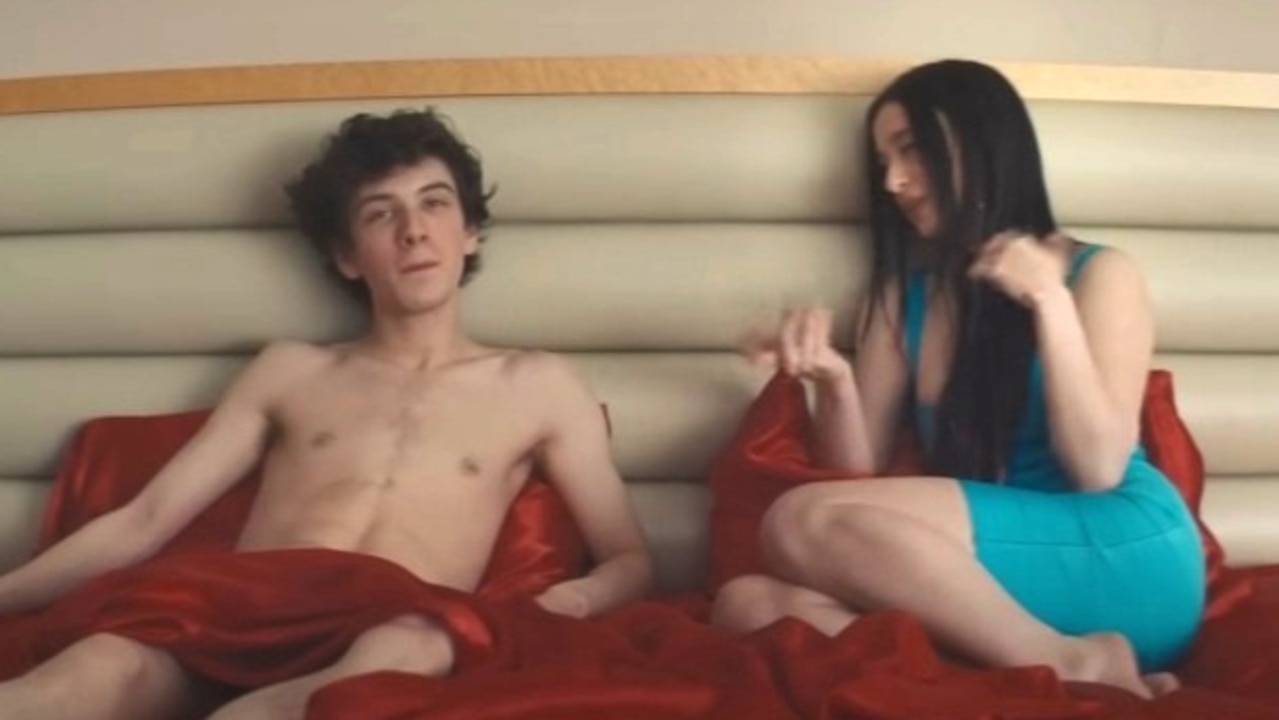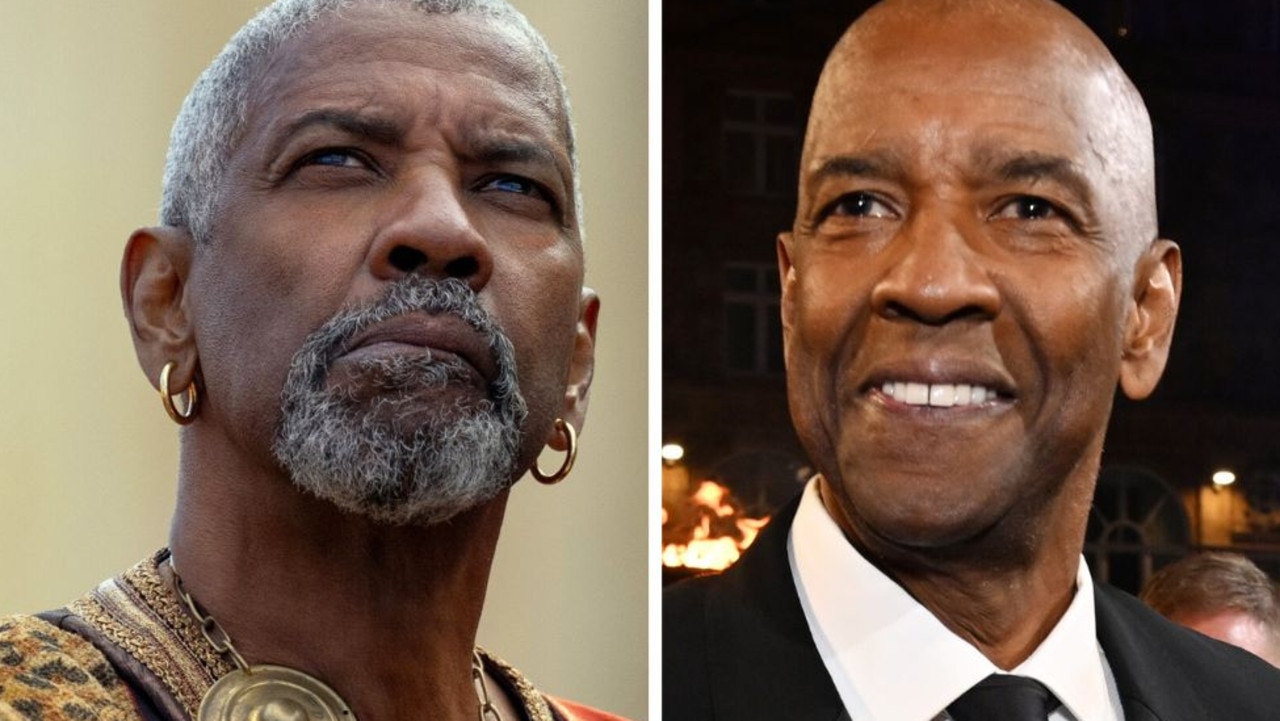#Oscarssowhite: Does the film industry have a problem with diversity?
TAKE a look at the Oscars Best Picture nominees, and then ask yourself, what do all of these films have in common? Why #Oscarssowhite is trending.
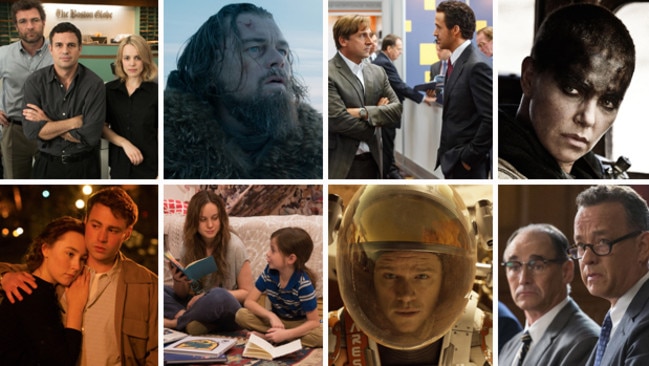
Oscars
Don't miss out on the headlines from Oscars. Followed categories will be added to My News.
OPINION
I HAD some friends over for a barbecue a week or so before Christmas.
It was a lunchtime thing that turned into an evening thing that eventually — around midnight — dissolved into a spontaneous interpretative dance to all 300 verses of American Pie.
At some point over the course of the day a very good friend and I started having an argument. Yes, we were both about four bottles of wine in, but I am from a long line of seasoned drunk-arguers and she’s an excellent lawyer so the tiff remained mostly erudite even as we cleared the room, with other guests quietly letting themselves out.
It was a week or so after Screen Australia had announced its “Gender Matters” initiative, which, as a freelance female writer/producer, filled me with hope. The “Gender Matters” scheme ensures that by the end of 2018, Screen Australia’s production funding will be dedicated to creative teams (writer, producer, director and lead actor) that are at least 50 per cent female.
My friend took issue with this “mandatory diversity”.
Her view (and she’s not alone) is that it’s unfair for talented men to lose out simply to fill a quota and that in the long run, this system gets us no closer to equality, it just creates a different kind of sexism.
I concede that true equality can only happen when no one has any advantage. But, quite frankly, that’s a pipe dream.
Here’s the reality check: most of the people making these decisions, not just in the film industry but in the world, sitting on boards, running companies and sifting through the shortlists of resumes and project proposals are blokes. The argument that “the best talent always rises to the top” is only valid if the top is neutral territory. And it’s not.
Sue Maslin, producer of The Dressmaker which took over $15 million in box office last year, couldn’t get money for her film without Liam Hemsworth attached. Kate Winslet (a current Oscar nominee) and Judy Davis (a straight-up acting legend) apparently weren’t enticing enough for the room of blokes making the decisions.
I’d almost forgotten this argument among the post Christmas/New years blur until yesterday when I was reminded again of the importance of making diversity a priority in the entertainment industry.
This week, actress Jada Pinkett-Smith has gone viral with a video calling for black people to boycott the Oscars until they begin to reflect reality. Legendary director Spike Lee agreed, saying he won’t be going either, despite winning an honorary Oscar in November.
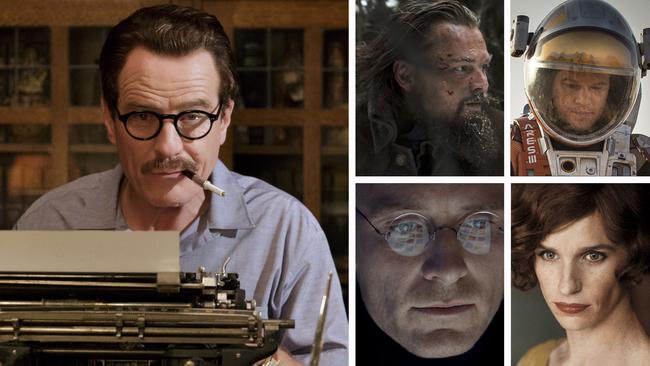
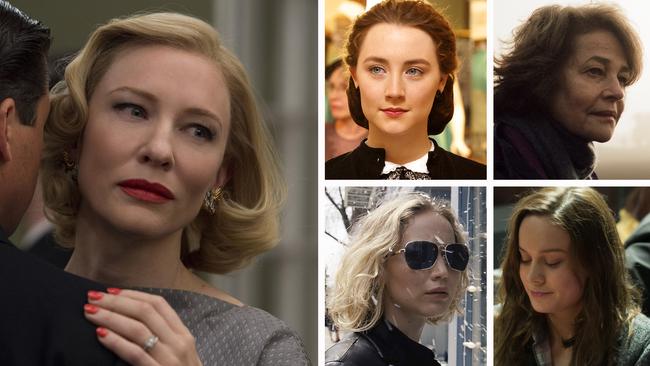
This is because, just like last year, among a pool of mostly excellent, worthy films, not a single one featured a protagonist, much less a storyline, focusing on anyone who wasn’t caucasian.
Not only that, but for the second year in a row, out of the total of 20 best actor nominees, not one of them is black. All of this has led to the re-emergence of the #Oscarssowhite hashtag trending on social media.
I’ve seen seven of the eight best picture nominees. I haven’t yet put myself through The Revenant but eventually I will if only to reaffirm my suspicion that it looks boring and indulgent.
I’ve seen all the other nominees across the acting, writing and directing categories.
Of the eight Best Picture nominees, six feature white male protagonists. Of these, three have only one female character at all — in a distinctly supporting role. There are two women in The Revenant (apparently) though one is raped and another slaughtered so it’s not exactly a brilliant example of girls on film.
Mad Max features an incredible (and arguably lead) performance by Charlize Theron, but she’s not the title character, doesn’t get top billing and you can bet your bum the movie wasn’t sold on her storyline.
Now, most of these nominated films are deserving. Some are brilliant. But does that mean that there aren’t others that should be there instead, if only for variety? Films like the exquisite female-led Carol or the excellent Straight Outta Compton for Best Picture or Michael B Jordan in Creed for Best Actor. How about some sort of recognition for Tangerine, the critically acclaimed film about Sunset Strip sex workers starring two largely unknown transgender actresses?
The fact is, “Best” when it comes to acting or filmmaking isn’t mathematical, it isn’t scientific: it is purely down to taste. And in the case of the Academy, it’s the taste of white men in their 60s who make up the bulk of the voting base.
In his statement Spike Lee says “People, the truth is we ain’t in those rooms and until minorities are, the Oscar nominees will remain lily white.”
He’s right. And it’s the same point I made with my friend: We’re not in the room where the decisions are made. Be it women or minorities or anybody else who isn’t in charge: We can’t get in. And if we can’t get in, we’ll never get to the top to help others get in there after us.
In a statement released after Pinkett-Smith’s video, Academy president Cheryl Boone Isaacs (who actually happens to be black and female) issued a statement saying she was “both heartbroken and frustrated about the lack of inclusion” and that there would be a review of their membership in the coming weeks to address the issue of diversity in the Academy. What this review will involve and just how drastic the changes will be remains unknown.
I have no particular agenda against men — white or otherwise — I like men a lot. And I’m sorry to this generation of good, deserving blokes that have to cop it now so that generations to come no longer have to deal with this discrimination, that’s the way it’s gotta be.
In his excellent Netflix show, Master of None, Aziz Ansari speaks up on behalf of a woman who is being discriminated against and ends up losing his own job when she is then promoted. Frustrated at being punished for doing the right thing, he complains to his girlfriend who tells him to suck it up, that someone always has to lose so that someone else gets (a chance) to win. Right now, in 2016, it’s gotta be the blokes.
We SHOULD all wake up each day on an equal playing field, but we don’t. It’s not personal, it’s business … or in this case, it’s life. The life of a woman. Or a minority.
If a Screen Australia incentive means that this year a lady gets to put her story onscreen instead of a man well, then, so be it.
If an Oscars boycott in 2016 means that next year half the nominated films represent people of diverse backgrounds, colours and lifestyles well, that’s progress. And if both those things inspire people and encourage those who watch these films to do something important and interesting with their own lives then that is the best possible outcome and the whole reason that art exists in the first place.
Everyone plays favourites, men and women alike. From the school playground to the sports field, from the casting couch to the corporate world, no one is removed from bias and it’s naive to think otherwise.
It’s not surprising that we gravitate towards wanting to see our own stories on screen and it’s not surprising that if, given the power to choose, we choose what is familiar, be it white, black, old, young, male, female or otherwise. But this has to change.
Quotas might not be fair to everyone but they give people a chance.
Quotas might not be fair to everyone but they get people in the room.
The irony is, if we don’t start to show a little unfairness, we’re never going to have true equality.
Originally published as #Oscarssowhite: Does the film industry have a problem with diversity?

